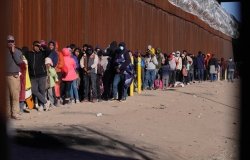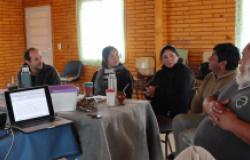#195 Energy Policy in the Western Hemisphere
By David L. Pumphrey
From the Preface
In July 1988, President Reagan signed an extension of the Energy Policy and Conservation Act directing the Secretary of Energy to conduct a study on "how best to enhance cooperation between the United States and other countries of the Western Hemisphere with respect to energy policy, including stable supplies of, and stable prices for, energy." In October 1990, the "The Report on the Western Hemisphere Energy Cooperation Study," prepared with the help of eleven government agencies, was completed by the Office of International Affairs of the Division of Energy Assessments.
On January 15, 1991, the DOE released the report to the public at an afternoon seminar held by the Latin American Program. This working paper is an edited transcript of the three presentations and the subsequent discussion session. The report is the first attempt by the Department to establish a comprehensive energy policy for the hemisphere, although it is distinctfrom the DOE's formulation of a national energy strategy. David Pumphrey discusses the origin of the study and its implications for policymakers. Two energy specialists, Joel Darmstadter and Chris Flavin, address the strengths and weaknesses of the findings.
Related Program

Latin America Program
The Wilson Center’s prestigious Latin America Program provides non-partisan expertise to a broad community of decision makers in the United States and Latin America on critical policy issues facing the Hemisphere. The Program provides insightful and actionable research for policymakers, private sector leaders, journalists, and public intellectuals in the United States and Latin America. To bridge the gap between scholarship and policy action, it fosters new inquiry, sponsors high-level public and private meetings among multiple stakeholders, and explores policy options to improve outcomes for citizens throughout the Americas. Drawing on the Wilson Center’s strength as the nation’s key non-partisan policy forum, the Program serves as a trusted source of analysis and a vital point of contact between the worlds of scholarship and action. Read more










